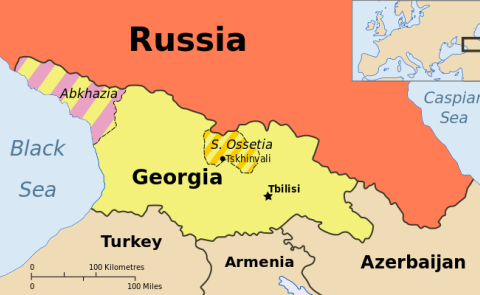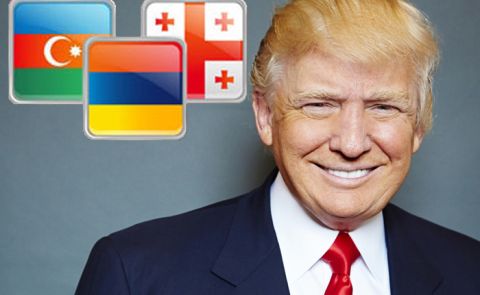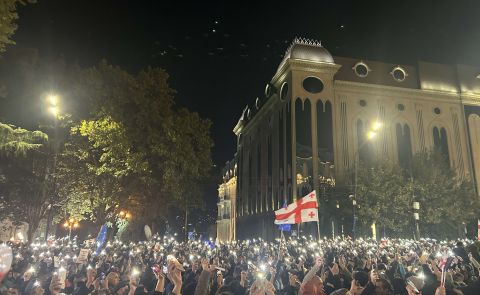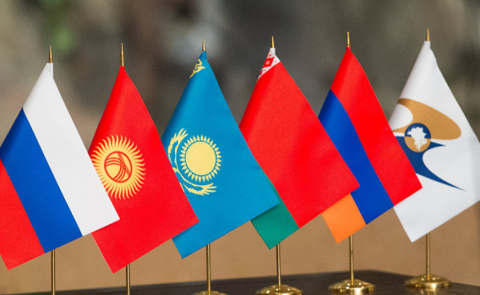
New Iranian Government and South Caucasus
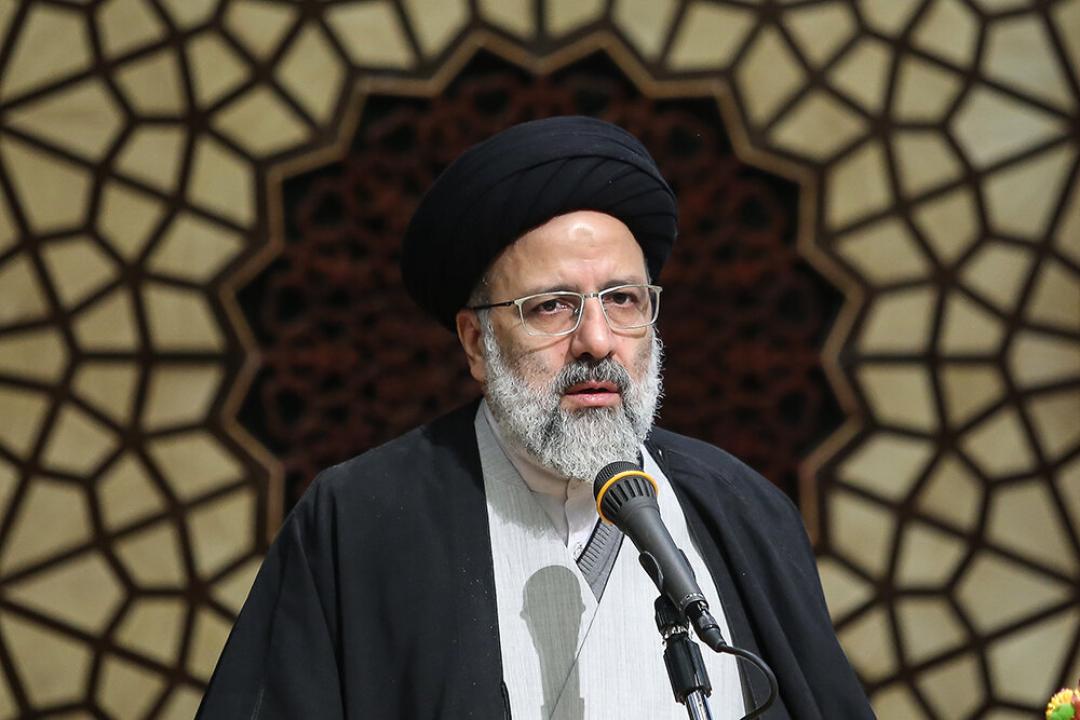
Under the presidency of hardliner Ebrahim Raisi, the South Caucasus will remain an important area in Iran’s foreign policy. Pragmatism will be a key driver – Tehran will maintain positive relations with all three South Caucasus states. From a larger perspective, Iran will be increasingly cooperative with Russia as both concur on the need to pursue “regionalization” of the South Caucasus. This effectively means shutting the region off from non-regional, mostly, Western powers.
Iran’s new president, Ebrahim Raisi, faces several immediate problems as well as long-term challenges the country has faced in recent years. He is most likely to pay special attention to reinvigorating economic investment and reform in Iran. Indeed, the economy matters for ordinary Iranians as they have been badly hit in the recent years following the US withdrawal from the nuclear accord reached in 2015.
Raisi, a hardliner among hardliners, might not seem a suitable candidate for engaging the West. Views are divided on whether he would be able to reach an agreement, but crucial here is the exponentially deteriorating economic situation in Iran. This makes addressing the economy and most probably engaging America to restore full effectiveness of the Joint Comprehensive Plan of Action (JCPOA), one of Raisi’s top priorities in the coming months. The new government also see the rising resentment in Iran against hardliners. Some numbers are revealing. When the JCPOA worked fully Iran’s economy jumped to 12.5 percent annual growth. When the US withdrew, inflation in Iran grew from 10 percent in 2017 to 40 percent in 2019. Currently it remains at about 30 percent. Unemployment is also expansive, currently reaching 12 percent and perhaps even higher. Added to these concerns are the pandemic-related economic and social problems. These issues show how problematic the sanctions are and underlines an urgent need to correct the situation by finding at least a temporary solution to the population’s woes. Engagement with the West is likely to follow, despite Raisi’s rather radical background. Talks in Vienna about Iran’s nuclear agreement are likely to produce some positive momentum.
Iran’s other foreign policy dilemma is Israel. With a post-Netanyahu Israel where a new government is in place, ties between the two states are unlikely to improve in any way. In fact, we might even witness drastic deterioration of security in the region. Israel has just gone through the escalation with Hamas and since the new Israeli government could also be labeled as that of ‘hardliner’ camp, Iran’s and Israel’s willingness to target each other will rather grow than decrease.
Beyond Israel, Iran is likely to pursue its traditional policy toward the Middle East. Heavy use of its para-military allies across the region will continue. Iran needs the ability to influence Iraq, Syria, Lebanon, Yemen, and other lands. This constitutes a backbone to Iran’s grand strategy in the region. The major goal of this strategy will be to maintain semi-official military presence in the above-mentioned states to have a real land corridor from Iran proper to the Mediterranean via Iraq and Syria. This is what has been driving Iranian political minds for decades and is also rooted in Iran’s history. Ever since the ancient Persian empires, Iranian shahs worked meticulously on attaining effective land corridors to larger economic markets. The Mediterranean and the Red Sea were starkest examples. Today both regions continue to be attractive economic spaces, but Iran also seeks access to the seas as a sign of its military ambitions, growing regional posture and the means to influence the geopolitics of distant places.
Apart from these larger geopolitical goals and challenges, Iran’s new president also faces a changed balance of power in the South Caucasus. Following the Second Karabakh War, the long-held status quo around Nagorno-Karabakh was drastically altered through Baku’s successful military campaign to regain the lands which had been under Armenian control. Raisi will have to be pragmatic. In fact, pragmatism is what characterized Iran’s foreign policy toward the South Caucasus since the end of the Soviet Union. It is based on geopolitical calculations – realism – rather than on religious motives. This approach served Iran’s interests as Tehran managed to maintain close and stable bilateral relations with the region’s three states – Armenia, Azerbaijan, and Georgia.
Therefore, despite the strengthening of the Islamic Republic’s conservative wing’s hold on power and the entrenchment of hardline external policy, it is likely that the premises of Raisi’s foreign policy toward the South Caucasus will remain based on decade-long pragmatism. Pragmatism will navigate Tehran towards closer ties with Azerbaijan, even though many argued Iran would not be happy with Azerbaijan’s military victory. On the contrary, perceiving the dangers of complicating the bilateral ties with Baku, Tehran will now be more willing to reach an understanding on various issues ranging from infrastructure, transit corridors, and cooperation in the Caspian Sea.
Viewing the South Caucasus from larger perspective, Iran will continue opposing the expansion of NATO into the region. Though Tehran does not possess a large toolkit to do so, Raisi’s government will cooperate with Russia. In fact, Iran favors Russia’s presence in the South Caucasus as opposed to an alternative scenario where Western influence continues to grow. Working in the shadow of Russia will characterize Iran’s stance.
Both states will support the “regionalization” of the South Caucasus, which means that the region’s problems should be exclusively managed by surrounding powers. This fits into the narrative of building an alternative world order whereby Iran and Russia pursue a realist approach, introducing a concert of great powers. Each would have a freer hand in its respective neighborhood, thus ushering in the age of spheres of influence. “Regionalization” of the South Caucasus fits into this narrative and though it remains to be seen how far this will go, some practical steps have already been made in this direction. For instance, 3+3 initiative proposed by the Iranian side during and after the Second Karabakh War presumed cooperation between three South Caucasus countries and three surrounding states. An implicit message in the proposition was the desire to side-line the collective West from the peacebuilding and security spheres in the South Caucasus.
Furthermore, Raisi’s foreign policy towards the region will also be about minimizing Israel’s and the US’ influence. For years Tehran was worried about military and security cooperation between Azerbaijan and Israel. There were even unconfirmed reports spread in western media on Israel’s alleged use of Azerbaijan as a launching pad for its intelligence activities covering Iran. This caused frictions in Azerbaijan-Iran ties, but it did show Iran’s red lines.
Though it is still difficult to assuredly state how Iran’s foreign policy will be changed in the course of Raisi’s presidency, major trends are nevertheless possible to outline. An emphasis on re-engaging the West to save the JCPOA will be made. In the South Caucasus, Iran will be pragmatic. It will also cooperate with Russia on pursuing “regionalization” of the region and building an order of exclusion where non-regional powers’ (i.e. the West) geopolitical power will be limited. Tehran’s policies in the South Caucasus also fit into Iran’s understanding about the changing global order and the emergence of multipolarity.
Emil Avdaliani is a professor at European University and the Director of Middle East Studies at Georgian think-tank, Geocase.

